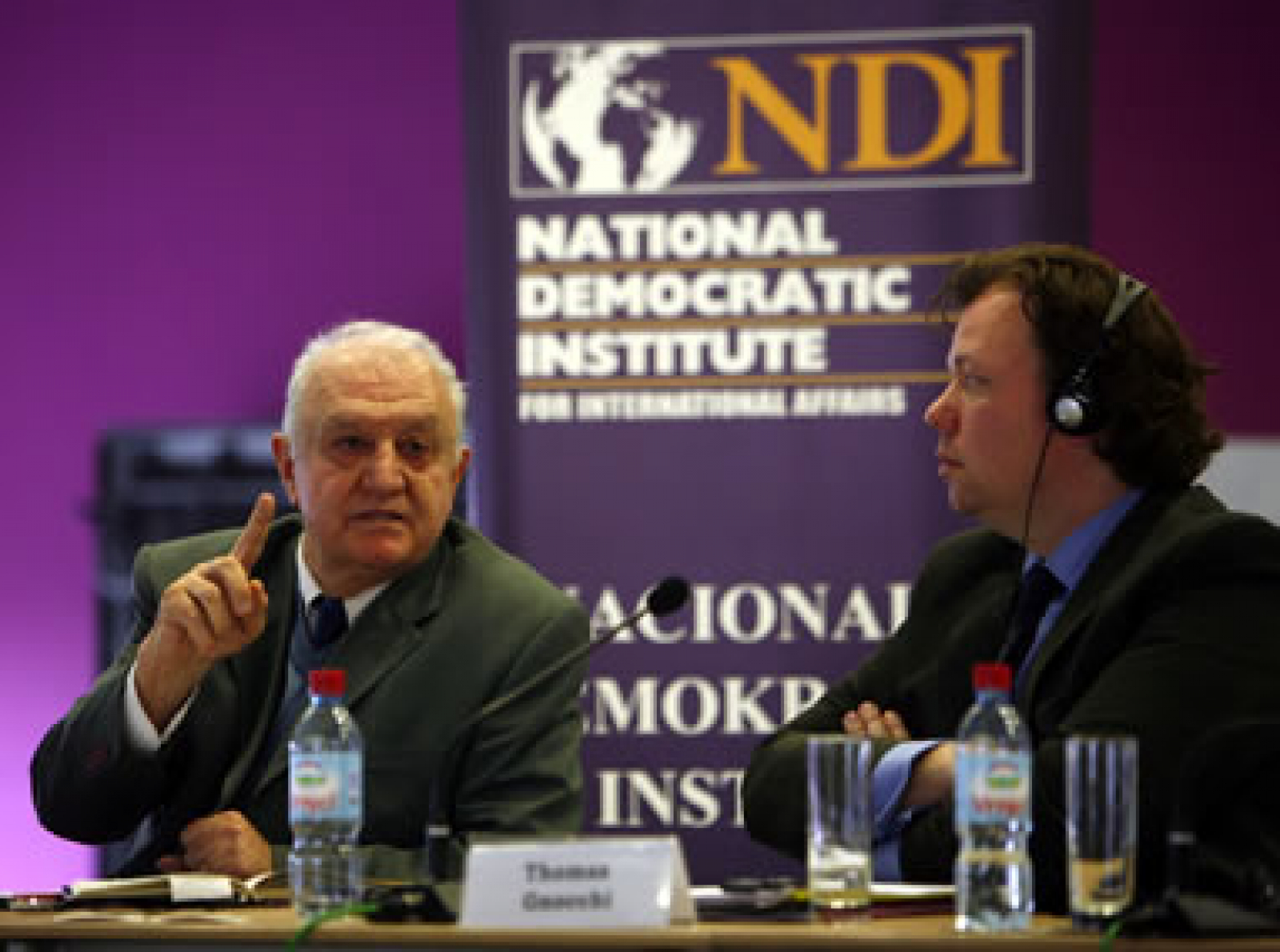
SHARE
On Jan. 31 the Serbian government submitted 2,483 answers to the European Union’s (EU) questionnaire to determine if Serbia is ready to become an official candidate for membership. An EU opinion on candidacy is expected later this year and, if positive, would accelerate Serbia’s democratic transition process as the country seeks to harmonize its political system to established EU standards on human rights, governmental transparency and other critical measures.
Serbia has made significant progress on its democracy agenda since the peaceful removal of Slobodan Milosevic in 2000, enhancing the political participation of ethnic minority groups and creating ways for young people and women to enter political life. However, Serbia’s election system — particularly the manner in which citizens vote for their representatives in parliament — is widely seen as holding it back from attaining the benchmarks required by Brussels and consolidating its citizens’ hard-won democratic gains.
The system gives political parties, not citizens, the power to decide which individuals are elected. Voters choose parties, not candidates. A party’s national percentage of the vote determines how many seats it will get, and parties can place whomever they wish in parliament. They don’t have to seat the individuals who were on the party’s candidate list, and there are no election districts so members of parliament (MPs) have no constituencies. The result is that a citizen in Serbia has no idea about, much less access to, an MP who formally represents him or her.
With a clear need for change, NDI launched a project to promote electoral reform through public discussion among parties, civic groups and parliamentary officials. Its focal point was a national conference — Returning Power to the People through Electoral Reform — held in March in Belgrade. Its goal was to increase the public’s interest in and knowledge of electoral reform issues. Topics included obstacles to reform, alternative electoral models, political party financing and corruption, and fair representation of women and minorities.
About 80 academics, members of parliament, representatives of government, political parties and civil society organizations discussed ways to bring Serbia into compliance with the recommendations of the Council of Europe’s advisory body on constitutional law — the Venice Commission. Speakers included Dimitrios Kypreos of Greece, ambassador of the Organization for Security and Cooperation in Europe; Veljko Odalovic, secretary general of the National Assembly of Serbia; Thomas Gnocchi, head of the political section of the EU Delegation to Serbia; and Thomas Kelly, NDI’s resident senior director in Serbia.
A full day of discussion and debate led to conclusions and recommendations that will inform parliamentary deliberation on reforming the election code. Among them:
- Electoral reforms that give people control over electing their representatives and diminish party control over MPs.
- Support for a proposed Law on Financing of Political Activities, which will bring more transparency and establish an Anti-Corruption Agency as an independent oversight body to regulate public and private financing of political parties and election campaigns. Political party financing is presently monitored by political appointees, and information about party spending and contributions is not available to the public.
- Protections for the representation of women, youth and ethnic minorities. One of every seven citizens is an ethnic minority and women make up 52 percent of the population. The draft law requires that 30 percent of a party’s candidate list must comprise the lesser-represented gender (LRG) within the outgoing parliament, and that 30 percent of a party’s actual seats in the new assembly must be reserved for the LRG. Similar provisions have not been proposed for ethnic minority groups.
- The government has taken steps to address these issues in order to satisfy the Venice Commission recommendations. The parliament has established a working group on electoral reform, consisting of MPs from all party groups represented in the National Assembly, which is responsible for the development of amendments to existing law on the election of MPs and the development of rules of conduct for parliament. The group will present its findings to the Venice Commission and, should the commission approve the proposed amendments, the National Assembly will vote on them during the spring session.
NDI’s conference recommendations dovetail with the working group’s anticipated proposals, among them the introduction of an “open list” system that enables citizens to vote their preferences among candidates and requires parties to seat candidates ranked highest by voters.
NDI will follow up the conference with a report summarizing the discussion and recommendations. The report will serve as a starting point for public debate that NDI will sponsor through roundtables in Bor, Kragujevac, Nis and Novi Sad. The Institute has also launched an electoral reform website: http://www.izbornareforma.rs/category/english.
NDI has supported Serbia’s democratic transition from its Belgrade office since 1997. The Institute’s Serbia program is funded by the U.S. Agency for International Development.
Related:
- In Serbia, NDI staff supports parliamentary efforts to strenghten governance»
- "Truth-O-Meter" encourages accountability in Serbia»
- Serbian citizens find answers with assembly liaison»
Pictured above: Vladimir Goati (l) and Thomas Gnocchi at the conference.
Published May 2, 2011


